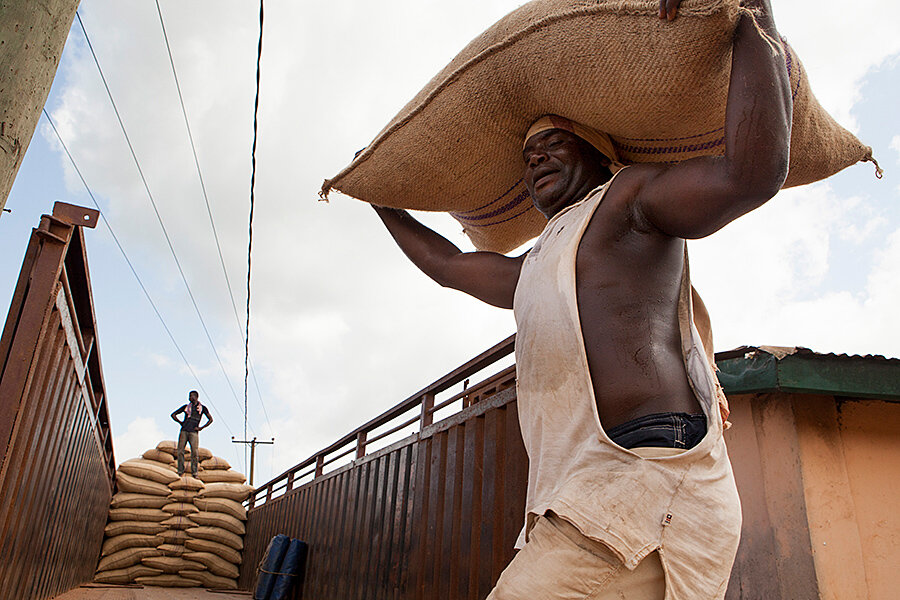A cluster of California class-action lawsuits against corporations such as Costco is pushing the envelope on accountability for human trafficking in supply chains. The keyword is transparency: If companies are forced to disclose when labor abuses are involved in making a product, they may be more likely to vigorously police their suppliers.
That level of disclosure would go significantly beyond the letter of a 2010 law. The California Transparency in Supply Chains Act requires large retail and manufacturing companies to disclose on their websites what, if anything, they are doing to eradicate trafficking and slavery among suppliers.
In the global cocoa industry, efforts to clean up supply chains have already helped address widespread child labor abuses. Each of the world’s top five chocolate producers – from Nestlé to Mars to Hershey’s – are developing or expanding third-party inspection systems meant to, among other goals, eliminate child trafficking and child labor by 2020 on the farms where they source cocoa.
Meanwhile, Ghana and Cote D’Ivoire – together responsible for about 70 percent of global cocoa output – have responded to international pressure by passing laws prohibiting child trafficking and overwork, and mandating primary school attendance.
Read the series:







